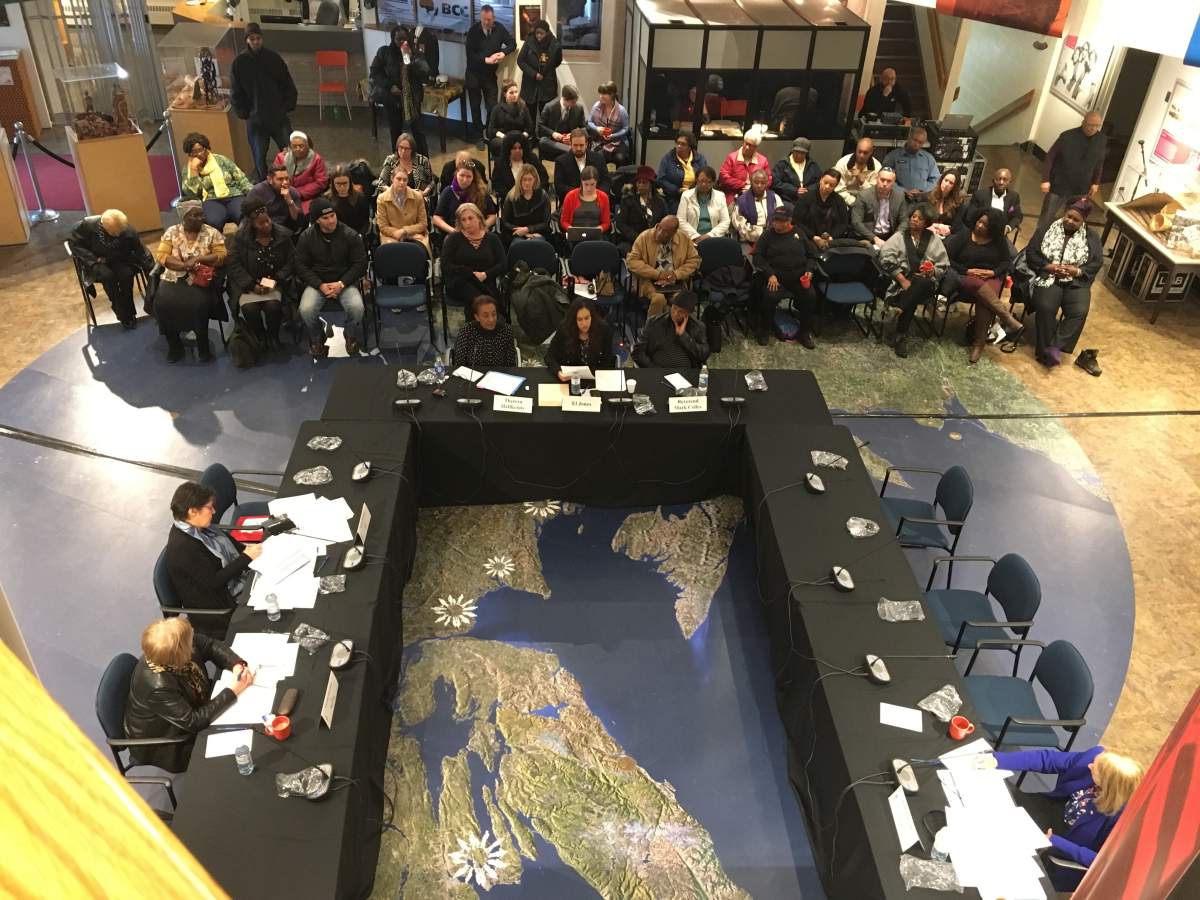The Senate Committee on Human Rights held a public hearing on the human rights of prisoners in federal correctional facilities on Monday in Cherry Brook, N.S.

The three-hour event was held at the Black Cultural Centre for Nova Scotia, and it’s part of a study that will explore the issues faced in prison by women, visible minorities and other groups.
READ MORE: Minorities over-represented in Canadian prisons: report
“Human rights are important for everyone. Prisoners’ human rights have not had enough attention in this country, so this study is a way of really raising awareness,” Senator Wanda Thomas Bernard said in an interview with Global News in Dartmouth earlier in the day.
“We’re really looking at this work from a social justice lens.”
Senators heard from a panel that included activist and Halifax’s former poet laureate El Jones.
“Prison is not a housing complex. Prison is not a job program. Prison is not a school. Prison is not social work or psychiatry. It is a traumatic place. It is a violent place, and it’s a place that we should only, if at all, be used as a last resort, not as a measure to fill in the gaps that have not been filled in society,” she told the committee.
Earlier, Jones read a statement from prisoners about the challenges they face while incarcerated.
Prisoners told her that some mandatory programs they attended left them with solutions they found unhelpful to their situations. Others felt that there is no way succeed in some programs, and they would be labelled “aggressive” if they vocalized their disagreement, she said.
Jones said she sees the value in programs, but they should be better tailored for inmates, and programs should be available in communities.

Get daily National news
“I want to vigorously oppose the idea that all our energy should be placed only into programming people in prison because we know the result of that will be: ‘Let’s just send more black people to prison. The programs there are so good,'” she said.
Rev. Mark Colley, another panellist, spoke about his life in and out of prison over a 12-year period.
He said, initially, he got in trouble for driving without a licence. Eventually, he got into trouble for thefts and robberies, having been inspired by other inmates.
“Next thing you know, you get out, you need money, and you do it, and that’s what happened to me. It was like a college. I learned to do things that I was never taught at home to do,” he said in an interview with Global News prior to speaking to the committee.
Religion helped change his life, Colley said.
“I used to blame the police. I used to blame people for me getting in trouble. I was the one out there breaking into people’s cars and breaking into houses and stealing, but yet it was always somebody else’s fault. But, at the end of the day, it was my fault. I’m the one that made the choice, and when I realized that I was the problem, I gave my heart to the lord and it changed my life,” he said.
Colley stressed that people have individual problems, and people need to truly want to change for anything to stick.
The committee is in Atlantic Canada this week. Members are talking with prisoners, employees and others involved in corrections.
READ MORE: Black in Halifax? You’re three times more likely to undergo police check
The committee has already done similar fact-finding work in Ontario and Quebec. Western provinces are also on the list.
Thomas Bernard said she has heard people concerned about, among other things, segregation in prisons, the over-representation of visible minority inmates, and the lack of attention to the root causes of crime.




_848x480_1397405763961.jpg?h=article-hero-560-keepratio&w=article-hero-small-keepratio&crop=1&quality=70&strip=all)

Comments